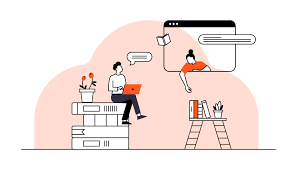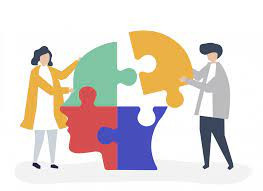3 Psychological Factors Influencing your Work Performance And How to deal with them
When distracted, it takes an average of 23 minutes and 15 seconds for a person to get back on track. Then why should we be distracted in the first place as well as why we usually get distracted?
Let’s put this in a situation where you sit down at your desk, with a cup of coffee and are eager to finish your 33 video lessons of My.SaleGene before the weekend. You then turn on your computer, check through some emails, and then get sidetracked by an online morning news ping on your phone. After that, you find yourself going through the Facebook newsfeed and reading an article on “ Become a Great Salesperson in 1 hour”.
You end up keeping on responding to text messages with your friends, checking the weather for the weekend, and thinking of where to go out this weekend while you are sitting behind a load of work. If you get lucky, you will start working again when a customer calls or gets an email that requires a response.
Distractions are omnipresent, stealthily stealing your time and focus in small doses while wreaking havoc on your productivity. Although some distractions may be avoided by just closing your door, others, particularly digital distractions, can be a little more difficult to avoid. Push notifications, pings, and timelines make us feel engaged and updated, but not necessarily at the right moments and with the proper information.
WHY IS IT SO DIFFICULT TO STAY FOCUSED AND MAKE PROGRESS?
1. WE ARE TOO BIASED TOWARD ACTION
One of the issues is that we are predisposed to take action rather than stop to think and focus on what is important. Therefore, we get right into work and do as much as we could by multitasking. But however busy we are, we are achieving less. We answer texts and compose emails at the same time, or study our 33 sales lessons online while going through Facebook on your phone.
Sadly, all of this activity comes with a price. Multitasking has been found in studies to diminish productivity by 40% and even impair IQ by 10 points. Because our brains cannot accomplish two things at once, instead of multitasking, you are simply flipping between two activities quickly, but each time at a cognitive cost of attention and mental strength.
This superficial bustle is a sort of procrastination. While most of us postpone, only a small proportion of us know why. Procrastination is frequently attributed to laziness or a lack of drive, but psychologists now understand that it is a coping mechanism for dealing with psychologically undesirable or complex tasks.
Rather than face a task that takes more mental capacity and focus, we do something pleasurable or less daunting to give ourselves an immediate soothing effect. Unfortunately, this temporary happiness bump frequently leaves us feeling bad and anxious, which encourages the chain reaction of procrastination. This is exactly the feeling why we delay learning our lessons as the number is quite challenging at first, however, would be worth it.
2. WE LACK OF SELF-CONTROL
So why can't we just apply our will and ignore the push notifications, buzzes, and pings? We can, but only for a short time. Self-control, like any other resource, has a finite supply. Ignoring your phone necessitates exerting effortful self-control, which temporarily depletes one's motivation to manage other moods, actions, and thinking. You may be able to ignore the first few pings, but it becomes more difficult as the day progresses, and then you find out your target of studying all your lessons in one day was ruined.
3. WE ARE WHAT OUR BRAINS CRAVE
To addon to the problem of self-control, our brains crave rewards often associated with social media and the seemingly endless stream of information from the internet. These distractions stimulate the production of two chemical rewards in the brain - dopamine, and oxytocin. Dopamine causes us to search, seek, and desire novelty - which naturally makes us curious to explore the constant flow of information from the internet.
Oxytocin, known for its ability to affect feelings of intimacy and bonding, is the stimulant for good feelings of love, empathy, trust, and compassion. When we post, comment, like, or share, and receive the same in return, our oxytocin levels rise and we feel more connected to those around us. The stimulation of social media not only makes us feel good but leaves us craving more.
HOW ARE WE SOLVING THIS PROBLEM?
BEING AWARE THAT WE ARE PROCRASTINATING
The first step to overcoming busyness and procrastination is awareness and understanding. Being aware of your procrastination habits and the reasons why you’re procrastinating can prevent you from feeling helpless, unmotivated, and defeated. Just look at how you are staring at your phone while sitting right in front of Mr. Bay’s lecturing you on your laptop and you will see.
Recognizing your procrastination allows you to recognize your brain's responses at work and better isolate the habit from your own identity. According to one study, students who forgiven themselves for procrastinating on their first exam were less inclined to procrastinate on the next.
Once you recognize it, the next step is to identify your goals and then simply to start – not finish, complete, or solve, but to start the task. This helps because progress, no matter how small, helps to motivate us to continue – especially when it aligns with our personal goals. So you just need to know why you need to finish those lessons and get straight to them and focus on them instead of overthinking how much you will achieve since you have started at least.
RESTORING SELF-CONTROL
The most important thing to know about your self-control is that it is a finite resource – one that diminishes with use. Ignoring push notifications, choosing vegetables over pizza, and exercising daily all draw from the same reserve of self-control – making it harder to make the better choice as the day goes on.
But there are a few things you can do it help replenish your self-control, like getting a good night’s sleep, meditating, and exporting self-control whenever possible. A good night’s sleep has been shown to help replenish your self-control reserves, as well as improve decision-making. Along with good sleep, meditation has also been linked to increased willpower, focus, and self-awareness. And if all else fails, remove your self-control from the equation entirely.
OVERCOMING DIGITAL ADDICTION
For many of us, our digital habits are the source of many productivity problems. Even when we know the source of the problem, it can be extremely difficult to fight against because tech, such as social media, has been engineered to be as addictive as drinking. This is why self-control is simply not enough – it’s an unfair fight against you and technology that has been specifically designed to keep your brain craving more.
With distractions draining us of our time and energy, it’s easy to lose sight of the things that matter most. Luckily, with the right understanding, techniques, and tools, our brain’s natural tendencies can be overcome.
And be always keeping in mind that what we will achieve when we have achieved productivity and when we have not. Will you become a great salesperson in the future or just sit there with some unfinished lessons.
Picture by: http://www.freepik.com











